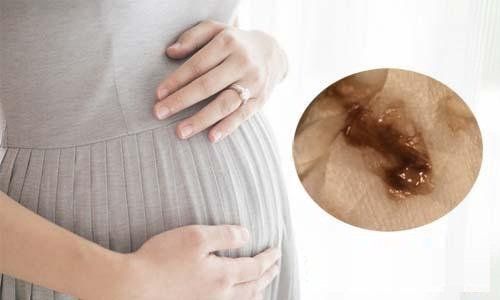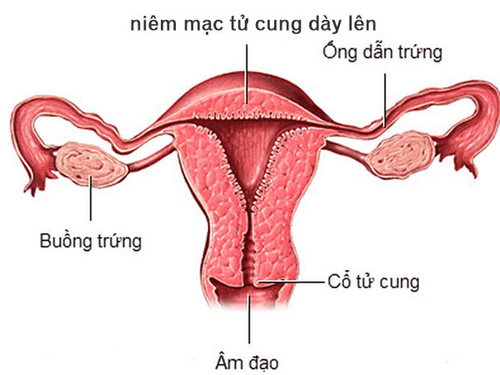Progynova 2mg is a prescription medication used to treat estrogen deficiency. In particular, Progynova helps thicken the uterine lining, and for this reason, it is currently used in treating infertility problems.
1. What is Progynova?
- Progynova 2mg is used to treat conditions related to lack of estrogen.
- It is a product from Bayer, made in Germany.
- The main ingredient is Estradiol Valerate 2mg.
- Other ingredients include lactose monohydrate, corn starch, polyvidone 25,000, talc, magnesium stearate, sucrose, polyvidone 700,000, macrogol 6,000, calcium carbonate, glycerol 85%, montanglycol wax, titanium dioxide, and indigo carmine paste.
- The medicine comes as film-coated tablets for oral use. One box usually contains one blister with 28 tablets.
2. What is Progynova used for?
- Progynova 2mg is a type of Hormone Replacement Therapy (HRT) for patients showing signs of estrogen deficiency. It is often prescribed to help with irregular bleeding, menopausal symptoms like dryness and itching in the vagina, and lowered sexual desire. In addition, it can be used to prevent osteoporosis after menopause. Because Progynova thickens the uterine lining, it is now used in infertility treatments.
- In cases of frozen embryo transfer, doctors use Progynova to thicken the uterine lining, helping the embryo implant better. Treatment continues until the embryo develops normally, then the medicine is usually stopped because it is not recommended to use it for too long during pregnancy.
- For women struggling to get pregnant naturally due to a thin uterine lining, doctors may prescribe Progynova to improve chances of implantation. Once pregnancy is established and the fetus develops, the doctor will decide when to stop the drug.
- Progynova 2mg is also used in treatment plans for weak fetal heartbeats because it helps improve blood flow and allows the embryo to get proper nutrition for heart development. This method supports the formation of the fetal heart without harming the mother’s health.
These treatments must always follow the doctor’s instructions.
3. How to use Progynova?
- For patients who have had their uterus removed, Progynova can be started at any time.
- For patients who still have their uterus and regular periods, you should start Progynova combined with a progestogen in the first 5 days of your menstrual cycle.
- For those with irregular periods or post-menopausal patients, you may start the combined therapy at any time.
- During treatment, make sure you are not pregnant.
Dosage and use:
- Take one 2mg Progynova tablet daily.
- Each blister of 28 tablets is for continuous 28-day treatment. Once you finish one blister, start a new one without a break.
- Swallow the tablet whole, do not crush or break it.
- Try to take the tablet at the same time each day.
If you forget a dose, take it as soon as possible. If it’s more than 24 hours late, skip the missed dose and continue your usual schedule. Forgetting several doses may cause unexpected bleeding.
4. Who should not use Progynova?
- Pregnant or breastfeeding women.
- Women with unexplained vaginal bleeding.
- Patients with breast cancer or suspected breast cancer.
- Patients with or suspected of having hormone-influenced benign or malignant tumors in the uterus.
- Patients with a history of benign or malignant liver tumors or severe liver disease.
- Patients with current or high risk of arterial or venous thrombosis (like heart attack, stroke, or embolism).
- Patients with severe high triglycerides.
- Anyone allergic to any ingredient of Progynova.
5. Warnings when using Progynova
Use Progynova cautiously to thicken the uterine lining in the following cases:
- Not indicated for children or adolescents.
- No data on dosage adjustment in the elderly.
- No specific studies on dose adjustment for patients with liver problems. Do not use Progynova in severe liver disease.
- No specific studies on dose adjustment for patients with kidney problems.
- Stop the medicine if you have migraines or severe headaches, or signs that suggest a risk of stroke.
- Stop if you suspect or have any symptoms of blood clots.
- Careful if you have gallbladder disease.
- Consider risks if you have dementia or tumors.
- Weigh benefits and risks before continuing Progynova if unusual signs appear.
Common side effects: Headache, dizziness, nausea, abdominal pain, skin rash, vaginal bleeding.
Rare side effects: Indigestion, breast tenderness, swelling, vision problems, heart rhythm changes, depression.
Drug Interactions:
- Drugs affecting liver enzymes (like Griseofulvin, Primidone, Oxcarbazepine, Rifampicin, Felbamate, Hydantoin, Barbiturates) can reduce Progynova’s effectiveness.
- Certain antibiotics (penicillin, tetracycline) may interact.
- Paracetamol might reduce the absorption of Progynova.
- Progynova can affect blood sugar medications, including insulin.
- Using Progynova with progestin can have a contraceptive effect.
- Store Progynova below 30°C at room temperature.
Progynova 2mg is a prescription hormone replacement medicine useful for those lacking estrogen. Notably, it helps thicken the uterine lining and is now used in infertility treatments. To ensure effectiveness and avoid side effects, patients must follow the doctor’s guidance.
Please dial HOTLINE for more information or register for an appointment HERE. Download MyVinmec app to make appointments faster and to manage your bookings easily.













